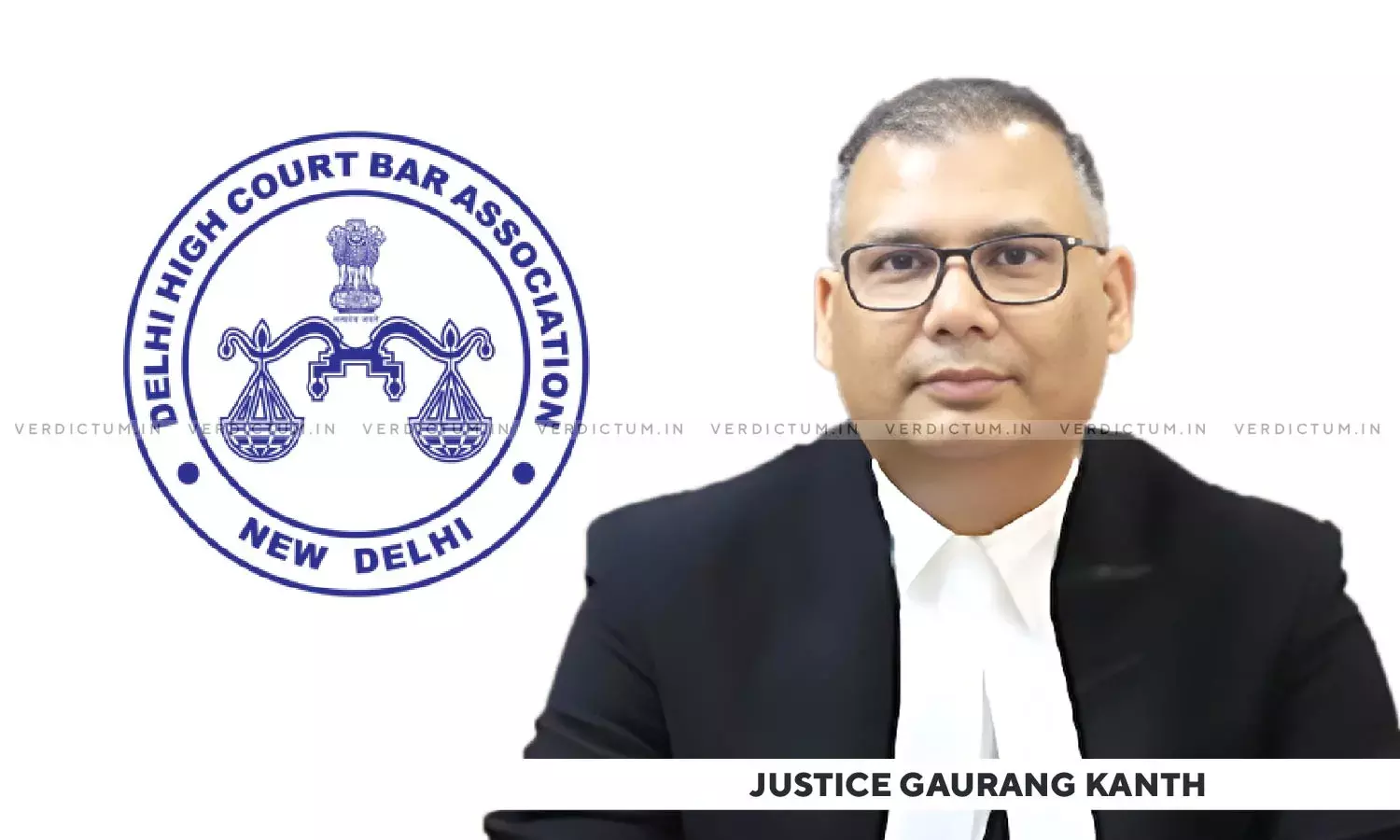DHCBA Passes Resolution Over SC Collegium's Recommendation To Transfer Justice Gaurang Kanth, To Abstain From Work On Monday
The Delhi High Court Bar Association (DHCBA) Thursday expressed concern over the Supreme Court collegium's recommendation to shift Delhi High Court judge Justice Gaurang Kanth to the Calcutta High Court, saying such transfer will adversely affect dispensation of justice on account of reduction in the existing strength of judges.
The bar body has asked it members to abstain from work on July 17 as a token of protest, saying the transfer is a "rarest of rare case".
"It is a matter of regret that while no attention is being paid by all concerned regarding the process of filling up of the existing vacancies in the Delhi High Court, yet the transfer of sitting judges is being made thereby further reducing the existing strength of judges in the Delhi High Court," a resolution moved by its president Mohit Mathur and adopted by the bar body said.
The resolution requested the Supreme Court collegium to revisit its recommendation of transfering Justice Kanth.
The DHCBA said a copy of the resolution was also being sent to the central government requesting it to not act on the recommendation and instead call upon the collegium to reconsider the decision.
"DHCBA unanimously resolves to request its members to abstain from work on Monday, that is, July 17, 2023 as a token of protest as the transfer is a rarest of rare case," the resolution said.
On Wednesday, the Supreme Court collegium resolved to recommend the transfer of three judges of different High Courts ignoring their representations for choice posting.
The collegium, headed by Chief Justice of India D Y Chandrachud, and also comprising Justice S K Kaul, Justice Sanjiv Khanna, Justice B R Gavai and Justice Surya Kant, recommended the transfer of Delhi High Court judge Justice Gaurang Kanth to the Calcutta High Court.
Justice Kanth had made a representation on July 7, 2023 requesting for a transfer to the Madhya Pradesh or Rajasthan High Court, or a court in any of the neighbouring states.
With PTI Inputs




